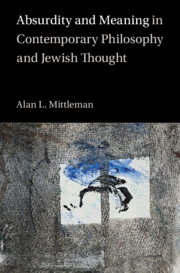In much of the emerging literature in African philosophy on the question of life's meaning, little, if anything, has been said about the relationship between African conceptions of death and the question of life's meaning. Drawing from clues in the literature on African metaphysics/philosophy of religion, this article will argue that within the context of an African conception of death, life is ultimately meaningless. To do this, I will begin by curating an African conception of death that sees death as primarily the disembodiment of subjective consciousness. Through this disembodiment, the individual can approach death with meaning in life and pivot into meaning after life. However, I will show this view to be mistaken on several grounds – the implausibility of the metaphysics grounding the possibility of disembodiment; and the idea of a second death inherent in the African conception of death. Thus, I will conclude that the finality of death provides good reason to acknowledge that life is ultimately meaningless.


